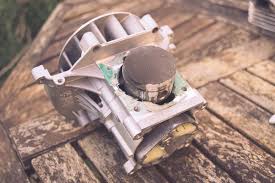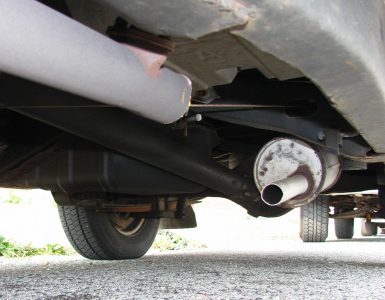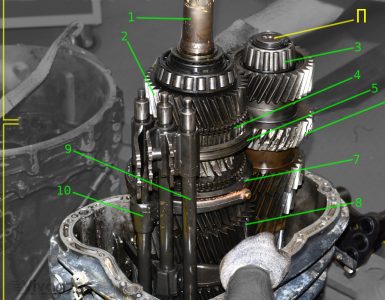Guide to Seized Engine
SeizedEngine – These faults always come when we least expect them.
It’ll happen before work, on a long road trip, or when you need to go shopping. You’ll start your car, only to hear a worrisome clunking noise.
Your car has shut down, and it won’t start. And it does that even with a full battery and a recently filled tank!
So what do you do in that situation? The answer is, you check the engine to see if it’s locked.
Note – It Can Happen When Driving.
And that’s a horrible side-effect with seized engines. They fail either before you start them, or in the middle of a drive.
If you’re on the road when that happens, you have to know how to unlock an engine. You need to check and see the causes, finding if the engine was seized or not.
Also READ: Thinking of Getting Used Tires – Here is What You Should Learn
In this article, we’ll look at signs of an engine that’s locked, in addition to the causing effects and fixes!
First – What’s a Seized Engine?
A more accurate question to ask would be – why does an engine seize up?
Most of the time, engines seize up from mechanical failures. And those tend to happen due to oil issues (when oil isn’t circulating properly).
The occurrence of that leads to internal metal mechanisms rubbing against one another, and this produces friction.
The friction produced creates a massive amount of heat. With that heat, issues that should move freely (and are quite soft) may weld into other parts, like the camshaft or crankshaft.
That welding is what leads to the really intense and rough noise that causes the engine to stop alone.
Another cause to note is rusting. And this is what occurs mostly in cars that haven’t run in a while, where piston rings may freeze on cylinder walls.
Bad Habits That Cause Engine Lockups
A normal cause is a lack of (or infrequent) changes of oils. Other causes include broken engine oil pumps, and sudden failures within the engine.
But to be specific, there are actually two types of engine lockups.
One is caused from water getting into the engine’s air intake (hydro-lock). And another is caused by heat that creates “fuel vapor,” while giving the fuel pump a difficult time (vapor-lock)!
Hydro-Locked Engine
Here, engines lockup when water gets trapped in the combustion chamber. And the result is, pistons can’t reach the top of a stroke since water doesn’t compress like air-fuel mixes. The result is a sudden engine stop.
You can sometimes get away with a hydro-lock if you’re driving on low RPMs. But with a high RPM, massive engine damage is always a guarantee.
Vapor-Locked Engine
This is slightly different. Here, the car won’t start. And it results from a fuel issue, where the gasoline in your fuel goes from liquid to gas, thus starving the engine. In those situations, the engine will start to lose power and turn off. And you’ll struggle to turn it back on again.
My Car Engine Seized Up – What Should I Do?
If your car locks up while you’re driving, we recommend switching your transmission to neutral while coasting to the side.
On the other hand, if engine seized issue occurs when your car is static, then just call a tow truck – since you won’t be able to drive off.
The Steps to Freeing a Locked Up Motor.
How you fix a motor depends on the cause of the issue. If you cannot figure out whether your engine’s locked or not, try using a breaker bar to turn the crankshaft.
If it’s turning, then your engine hasn’t seized, and you should seek another cause.
- If your engine seized while driving, you’ll need an intensive repair or a replacement.
- If the engine seized from long-time of non-use, then take out the sparkplugs from all cylinders. Add engine oil to them, then wait a couple of days. After that, turn the engine on with a breaker bar. If that works, then the engine is salvageable. If not, you may have to rebuild your engine.
For hydro-locks, take out the spark plugs then immediately turn over the crank. You want the water to pump out of the cylinders, which will break the hydro-lock. From there, hope there aren’t damaged parts in the motor.
For vapor-locks, you’ll need fuel to cool the condensation point. This can occur more frequently just by leaving your car turned off and letting it cool-down.
Is it Worth Fixing Seized Engine?
The answer to that depends on the severity of the engine issue.
If it’s a simple problem with a quick-seized engine, then you can easily fix the car. However, you might end up with a fully blown engine – where the cost of fixing goes over the car’s value.
Here, you’re either relying on insurance to help you out. And if that’s not going to cut it (for older cars), then consider getting a new car.
What’s the Cost of Seized Engine Repair?
It depends.
For vapor-locks, you can often get away with a costless self-fix. This is assuming you manage to cool down the fuel quick.
However, if the fuel pump overheats, you might have to dish out $500 to $1500 for replacements.
As for hydro-locks, you might have to replace spark plugs (which don’t cost much). Or, if you end up with a damaged engine when the hydro-lock occurs, you might end up paying a few thousand dollars.
Can I Rebuild a Seized Engine?
You can if it’s a result of oil starvation. But in those situations, you’ll end up paying a lot for labor costs.
After all, a mechanic will need to inspect the engine fully, ensuring a lack of irreparable damage. Plus, the process of reassembling the engine takes a long time.
Usually, inspections try to check if engine parts haven’t been warped by heat. Also, inspections will check to ensure that a rod isn’t going through engine blocks.
Depending on the situation, you might be better off selling your car with a blown engine!
What Are the Costs of Fixing a Seized Engine?
If your engine seized and it needs rebuilds or replacements, then you might end up paying over $3000 for repairs.
If the expenses aren’t in the range of what you can afford, then we recommend selling your car!




Add comment